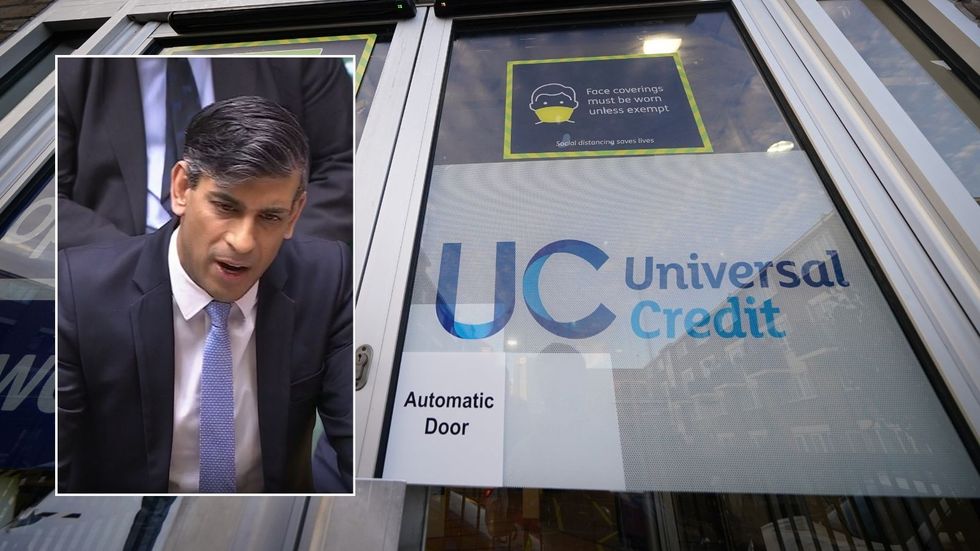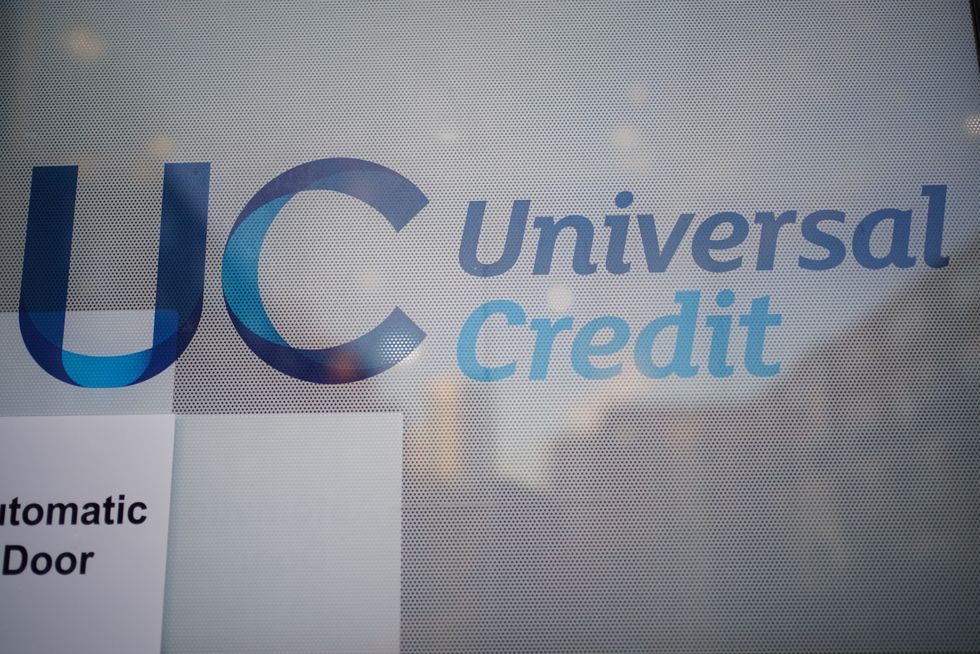Universal Credit claims continue to rise but Prime Minister Rishi Sunak’s proposed “crackdown” on the benefits system could generate close to £69million for the UK economy, according to experts.
Analysis of figures from the Department for Work and Pensions (DWP) by RIFT found that claims for the means-tested benefit payment have increased by 14.3 per cent across the country in the last year.
This comes after Sunak’s pledge to accelerate the transition of those on legacy benefits, such as Jobseekers’ Allowance (JSA), onto Universal Credit which will be the primary payment for those looking for work.
Despite this transition between payments, new evidence suggests recently introduced reforms will bolster the country’s economic prospects and keep Britons from relying on the welfare state.
The recent jump in Universal Credit claims could be partially attributed to this move away from legacy benefits.
Recently, the Government has promised to clamp down on benefit fraud among DWP claimants with figures from the National Audit Office (NAO) highlighting that a quarter of JSA claimants had been caught abusing the system.
Do you have a money story you’d like to share? Get in touch by emailing money@gbnews.uk.

As well as this, Sunak has confirmed the Government will stop awarding benefit payments to jobseekers who fail to secure employment within 12 months of receiving support from the DWP.
Experts are highlighting how much money can be raised for Britain’s economy if the Prime Minister follows through with his tougher stance on the existing benefits system.
RIFT’s analysis of DWP figures reveals that if more JSA claimants are pushed into employment, the UK’s economy will benefit from a sizable hike in tax contributions.
Taking into account the current minimum wage for over 21s and a 40-hour work week, claimants making the move from JSA to employment could make a gross average salary of £23,795.
From this amount, former DWP claimants would make an annual tax contribution of £3,143 which comes to £2,245 in income tax and £898 in National Insurance.
Based on the tax specialists’ research, if a quarter of the current 87,631 JSA claimants were to make this tax contribution on a yearly basis, the UK economy would be bolstered by £68.9million.
Some £11.4million of this amount in Jobseekers Allowance would come from claimants based in London alone.
Bradley Post, the managing director of RIFT, outlined why following through with a crackdown on DWP claimants is in Rishi Sunak’s favour.
He said: “Britain’s benefit system plays a vital role in supporting those most in need and Jobseekers’ Allowance makes a valuable contribution in this respect.
“However, as in all areas of life, there are unfortunately those who game the system for their own individual gain and it’s these people who the prime minister has pledged to crack down on should the Conservatives win the next general election.
LATEST DEVELOPMENTS:
- Pensioners missing out on £470m due to National Insurance error
- Pensioners missing out on £3,500 a year amid 'relentless' price rises
- DWP unveils three changes to Universal Credit and hires 2,500 'agents' to spot 'incorrect' claims

“Should just a quarter of JSA claimants be encouraged into employment, it would bring a sizable boost to the British economy at a time when it is arguably well needed.
“Although we must appreciate that for many, this transition is easier said than done when you take their wider financial situation into account and the fact that they may be worse off in employment compared to the cumulative level of benefits they receive.”
According to analysis of DWP figures, the North West, Yorkshire and the Humber and the East Midlands saw the biggest increase in new claims for Universal Credit between April 2023 and April 2024.
It should be noted that these figures are provisional and will be finalised at a later date. However, it is expected provisional statistics will be within two percentage points of the final figure.
from GB News https://ift.tt/1bzKF4P




0 Comments